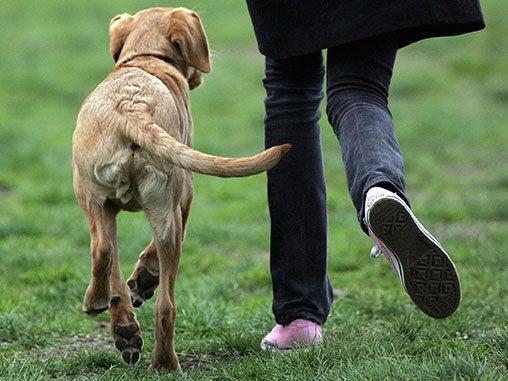EU rules preventing spread of rabies by dogs 'not fit for purpose', says leading veterinary surgeon
The warning comes as new research criticises an EU decision to end the requirement for an additional blood test on dogs being transport across the EU

European Union regulations on the movement of dogs intended to prevent the spread of rabies are “simply not fit for purpose”, according to one of Britain’s leading veterinary surgeons.
The warning from Paula Boyden, director of the Dogs Trust charity, comes as new research from Norway, whose conclusions apply to the UK, criticises the decision by Brussels to end the requirement for an additional blood test on dogs being transport across the EU.
The abandoned test used to be carried out a month after “pet passport” micro-chipping and the delivery of a rabies vaccination. The easier regime, according to the Norwegian research, could be increasing the risk of the virus entering rabies-free countries from Eastern Europe.
Although Britain has been free of rabies since the beginning of the 20th century, with Ireland, Malta, Sweden and Norway also clear of the virus, there are areas of Europe where rabies is still endemic.
The NHS estimate that there are 55,000 deaths worldwide from rabies. Most cases occur in the developing world. All mammals can carry the virus, but dogs, cats, bats and foxes are the species most commonly infected.
The acute viral infection which targets the brain and the nervous system is almost invariably fatal once symptoms develop.
They examined the impact of the 2012 changes to EU regulations which allowed an easier regime for the movement of non-commercial cats, dogs and ferrets across Europe.
The UK requirement that animals also underwent a six months wait, even after a virus-free blood test, was also ended by the new EU scheme.
The Scandinavian research suggests current rules have made it easier to move pet dogs across the EU.
The Oslo researchers tested legally imported animals that had been certified as vaccinated against rabies. But the level of adequate protection measured in the animals, mainly from Eastern Europe, caused concern.
Dr Boyden, writing in the journal, Veterinary Record, said dog traffic from rabies endemic countries into the UK rose by 78 percent between 2011 and 2013.
She warned that “poor compliance” with rabies vaccination along with checks associated with the movement of dogs “are simply not fit for purpose ”, adding: “Vaccinating a dog which is already incubating the disease will have little or no effect. Whilst the risk of rabies may be low, it is not absent. Does it have to take a case of the disease in the UK before this process is critically reviewed? ”
Subscribe to Independent Premium to bookmark this article
Want to bookmark your favourite articles and stories to read or reference later? Start your Independent Premium subscription today.

Join our commenting forum
Join thought-provoking conversations, follow other Independent readers and see their replies